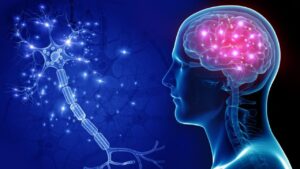Neuro Treatment in India
Neurosurgery: What is it?
The medical specialty of neurosurgery, also known as neurological surgery, is dedicated to the prevention, diagnosis, surgical treatment, and rehabilitation of disorders affecting any part of the nervous system, including the brain, spinal cord, central nervous system, peripheral nervous system, and cerebrovascular system.
The term “brain surgery” is another common name for neurosurgery.
Both adult and pediatric patients can receive treatment under the neurosurgical specialty. Depending on the severity of the injury or sickness, a neurological surgeon may administer both surgical and non-surgical care.
Which neurosurgical procedures are available in India?
The symptoms of neurological illnesses can differ greatly depending on the condition and the specific area of the body affected. You may feel distinct physical symptoms in some disorders, while you may also experience emotional symptoms in other conditions.
Following are the many forms of neurosurgery available in India:
Treatment for neurogenetic diseases:
Modifications to genes and chromosomes are the basis for the symptoms of neurogenetic disorders. These disorders have an impact on the muscles, nerves, spinal cord, and brain.
Health issues may result from neurogenetic diseases at birth or later in childhood.
There are numerous types of neurogenetic disorders, including epilepsy, autism spectrum disease, brain abnormalities, pediatric stroke, etc. Surgery and therapeutic techniques are used in several therapies.
Treatment for cranial base disease:
Any nerve that connects the brain to the rest of the body must pass via the cranial base, a small but extremely complicated structure at the base of the skull.
If you have a disease of the cranial base, you may encounter neurological problems such headaches, facial pain, impaired vision, vertigo, and seizures.
When a tumor is large enough to put pressure on the brain or the nerves, these symptoms frequently appear. Cushing’s disease, pituitary tumors, facial nerve abnormalities, cerebrospinal fluid leakage, and other ailments are examples of cranial base diseases.
Treatment for brain tumors:
A brain tumor is a growth or abnormal mass of cells in the brain. There are several benign (non-cancerous) brain tumors. While others have the potential to be cancerous. Primary brain tumors are those that start in the brain; secondary or metastatic brain tumors are those that start in other places of the body and spread to the brain.
The type, size, and location of your brain tumor will all affect the treatment options you have. A brain tumor can be successfully treated using a variety of procedural techniques, including radiosurgery, minimally invasive scarless brain surgery, and others.
Treatment for neurovascular disease:
Adult problems brought on by anomalies in the blood arteries inside the brain and spine or the blood vessels that provide blood to the brain and spine are known as neurovascular disorders, which are a major cause of mortality.
The process involves arterial narrowing, which lowers cerebral blood flow and raises the risk of stroke.
Aneurysms in the brain and other conditions that raise the risk of a stroke can result from neurovascular diseases, which can actually cause the arteries to burst. Stroke, brain aneurysms, intracranial vascular disease, venous sinus thrombosis, etc. are examples of neurovascular illnesses.
Neuro spine surgeries
Neuro-spinal surgery is performed to treat diseases and injuries of the spinal cord. The procedure restores spinal cord pain and enables the blocked nerves to function normally. The procedure also resolves neck and lower back issues.
Among the spine surgeries done are those for cervical and lumbar disks, degenerative spine conditions, tumors of the spine, spinal injuries, fractures, image-guided and keyhole surgery, and minimally invasive spine procedures.
Neuro-spine surgeons may undertake a variety of surgical procedures to treat unpleasant symptoms, rectify misalignment, and restore spinal structures. Nerves, ligaments, discs, and malfunctioning spinal cord anomalies can all be treated by neuro-spine surgery.
A faster recovery, fewer incisions, and little to no bleeding are all benefits of minimally invasive neuro-spine surgery, which has become more common due to technological innovation and surgical intervention.





